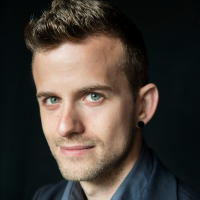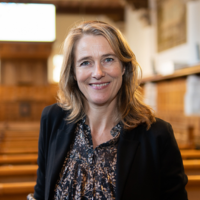
The new self-evaluation of the Institute of Psychology: ‘The quality of the academic culture is more important’
Better supervision of PhD candidates, clear guidelines on career paths and an MRI scanner that can be accessed by all researchers: these are the recommendations from the new self-evaluation. Colleagues say: ‘This forces us as an institute to formulate our mission and vision more precisely.’

Every six years all research insitutes in the Netherlands carry out a self-evaluation, including the institutes at Leiden University. The self-evaluation of the Institute of Psychology took place at the same time last year as the development of the new vision and strategy. That process has now been completed and the report has been published. But what exactly is such an evaluation, why is it important and what potential areas for improvement is the board of the institute going to work on? Six questions about the self-evaluation were put to Director of Research Lotte van Dillen.
1. What is the self-evaluation?
‘It’s a document in which all institutes in the Netherlands evaluate their research. They also describe how their research is organised. The evaluation focuses on goals set by the institutes themselves, but all of them focus on roughly three areas: the quality of the research, the societal relevance of the research and future-proofing the unit/institute. If you ask me, this kind of evaluation works as a kind of signpost: Look, this is where we are now, and this is where we want to get to.’

Zafira Shabrina, external PhD candidate at Social, Economic and Organisation Psychology
‘In the interviews with the committee I stressed that I believe the institute treats external PhD candidates well. I am part of the same infrastructure, I have my own desk and laptop. I also have access to research funding within the department, which isn’t always the case for external PhD candidates. One thing I do find it difficult is that the institute’s HR system focuses exclusively on internal staff. I recently had to advance money for a course outside Leiden and I couldn’t easily claim the money back via the regular reimbursement system. It worked out in the end, but it took two months. I think there would be more equality among PhDs if the HR system was evened out.
‘In Indonesia, where I am from, Leiden is seen as a model university. I’m doing my PhD research at the Knowledge Centre for Psychology and Economic Behaviour, where we do a lot of research on financial decision-making. We examine for government institutions, such as the Ministry of Social Affairs, how they can better help citizens to handle their finances. This PhD research makes me realise what an important role Leiden University has in society.’
2. How does the evaluation actually work?
‘First we write a self-evaluation as an institute, using input from research coordinators and a sounding board group set up for the purpose and made up of staff from all layers of the organisation We use the SEP for this: the strategy-evaluation protocol, set up by the UNL, NWO and KNAW. Based on this self-evaluation we are then visited by an external committee of colleagues from the field. As a team, they interview colleagues from the institute on the topics from the SEP. On the basis of these interviews, the committee writes an assessment report with recommendations for how we can further improve our research. Focusing on these recommendations, the institute, together with the faculty, responds, gives a written response, setting out how they intend to address the issues and then discusses this with the Executive Board. All the documents are made publicly available at the end of the process.'
3. How does the collaboration with other universities work?
'We carried out the present self-evaluation simultaneously with seven other universities (VU, UvA, RUG, EUR, OU, UM, UU). This way we were not only able to evaluate our own institute, but also the state of psychology research at national level. This let us look at more general developments and challenges, but also where the differences are in the focus areas of the institutes, and how they cooperate with each other.’

Francesco Walker, Assistant Professor at Cognitive Psychology
‘Transparancy is becoming increasingly important and Dutch universities make every effort to maintain the quality of research and teaching at the highest level. That’s why this assessment is necessary. It is an opportunity for us to reflect internally on where we stand and where we can make improvements. During the interview with the assessment committee Lotte therefore encouraged us to be as transparent as possible.
‘An important issue for me is the societal relevance of our work, how we translate research to the practical environment. At the present time I am researching in the Rijksmuseum how children experience art. Museums are often dependent on their internal research departments and it is rare for them to collaborate with universities. This means that valuable knowledge is lost. We want to bridge this gap. The museums with which we work can use and apply the information we collect, for example in how provide information to visitors of varying ages. Our aim is to create a holistic museum experience, supported by robust scientific evidence.’
4. What was different this time from other occasions?
‘Previously, the SEP focused mainly on quantitative performance criteria: how many subsidies have been secured? In how many high impact journals have researchers published? Although these types of quantitative criteria are still important, the focus of the current self-evaluation was more on self-development: on the quality of the organisation and the research practice. The quality of the academic culture was also given greater weight this time, as were Open Science practices, talent policy and the supervision of PhD candidates. The assessment isn’t expressed in a number but is a qualitative evaluation with clear recommendations for improvement.’
5. What are the most important recommendations to come out of the assessment?
‘One of the recommendations relates to the MRI scanner; this has to be refinanced. On the basis of our report, the committee has concluded that this central facility is crucial for our neuropsychological research, and that it is important to draw up a financial plan for how to do this. We want to discuss with our own and other faculties involved and the Executive Board how we can keep the scanner accessible for the researchers who want to make use of it.
‘Another issue is the supervision of PhD candidates. It ought not to make a difference whether a PhD candidate is appointed by Leiden University or whether they are an external candidate: everyone should have the same development opportunities. We already do that to some extent: all PhD candidates can follow a training programme for the same number of hours at the Graduate School. We’ve also levelled things up so that all PhD students get an annual interview that not only covers their performance, but also what their development ambitions are and what courses they want to take. That helps the supervisor to stay aware of progress and it’s also good for the candidates themselves.’

Bernet Elzinga, Professor at Clinical Psychology
‘It’s always easier for someone else to identify your strong and less strong points more astutely than you can. That’s also true for this kind of committee, helped by the fact that comparisons can also be made with other institutes. There’s a lot we can learn from this. And the self-reflection in preparation for the assessment is at least as valuable too. You are forced as an institute to formulate your mission and vision very clearly, to really think about what you are doing and what the benefits are. Involving as many people as possible in this, from PhD candidates to professors, gives you a valuable exchange of information.
‘A lot is already being done to supervise young researchers better. PhD candidates from our section have jointly written a handbook with all the ins and outs of the PhD track. It includes what’s expected of them, and - at least as important – what PhD candidates may expect from their supervisors, in terms of supervision, for example. We also connect new PhD candidates with candidates who are a couple of years into their research so that they can ask them the more straightforward questions.’
6. Are the recommendations from the report binding?
‘No. In that sense, it is different from an education assessment, that your accreditation depends on. These are recommendations that give you the opportunity to make improvements, rather than being demands. Even so, we still have to explain again in six years’ time what we have done with regard to the previous evaluation; that’s enough of a motivation to work hard on the recommendations. Finally, I just want to say that the committee was extremely positive about our institute.’
